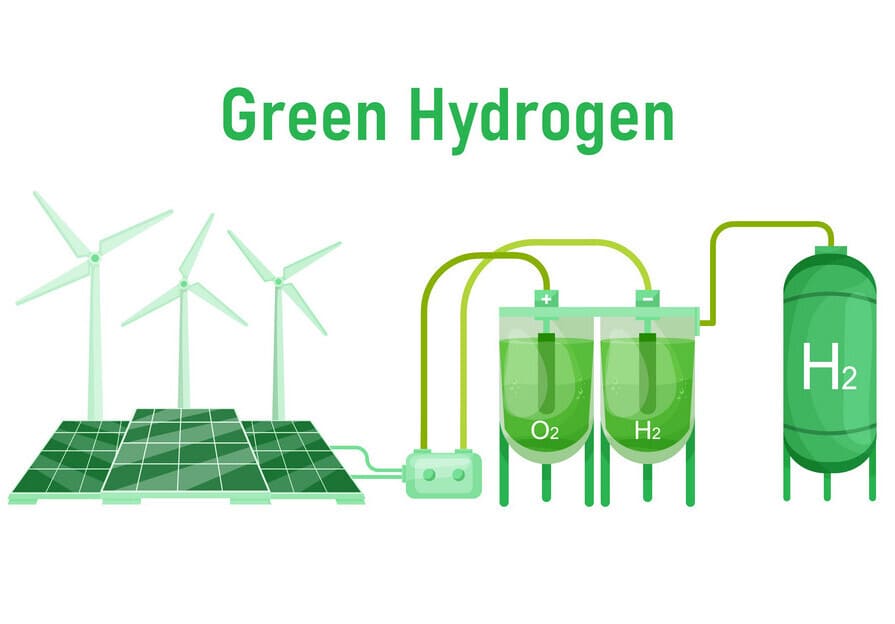
Case Study: Transitioning to Green Hydrogen: A Sustainable Future for China
Title
Case Study: Transitioning to Green Hydrogen: A Sustainable Future for China
Author
1. Xiao Gu, Student, Xihua University, Chengdu, China
Abstract
China's pursuit of a sustainable economic development model encounters formidable environmental obstacles. In order to combat China's carbon emissions, this study investigates the possibility of using green hydrogen. While hydrogen gas is in short supply on Earth, the most plentiful element in the cosmos may be created from various sources, one of which is renewable energy. When burnt, fossil fuels release carbon dioxide into the atmosphere; green hydrogen, produced by renewable energies like sunlight and wind power, is a great alternative.
The study highlights the green hydrogen production process, which involves generating clean energy, adding water to an electrolyser, splitting water molecules into hydrogen and oxygen, and storing compressed hydrogen gas. Natural gas, oil, and coal comprise the bulk of China's energy mix. Transitioning to green hydrogen could significantly reduce carbon emissions and enhance energy security.
However, obstacles such as rising manufacturing prices, new infrastructure, and technological advances need fixing. By investing in hydrogen production technologies and infrastructure, China can lead the global transition towards sustainable energy, reduce carbon emissions, and achieve its sustainability goals. This case study underscores the importance of green hydrogen in China's future energy strategy.
Keywords
Conclusion
A sustainable energy source like green hydrogen may be very useful to China. China could spearhead the global transition to renewable energy, reduce carbon emissions, and increase energy security by investing in hydrogen production infrastructure and technologies. Despite the challenges posed by infrastructure development and high production costs, hydrogen remains a vital component of China's energy strategy due to its abundance, adaptability, and cleanliness. By putting green hydrogen into action, China can achieve its climate goals and set the stage for a greener future.
Author Contrubution
The sole responsibility for the study design, data gathering, results analysis, and manuscript drafting lies with the author.
Funding
The research, authorship, and publication of this article were not funded by any specific grants from public, commercial, or non-profit agencies.
Conflict of Interest
All authors confirm that there are no conflicts of interest associated with this research.
Data Sharing Statement
The study does not include any data sharing components.
Software And Tools Use
No particular software or tools were employed in this study.
Acknowledgements
I extend my gratitude to everyone who contributed their expertise to this study and manuscript, and to the anonymous reviewers for their helpful comments.
Corresponding Author
Xiao Gu
Xihua University, Chengdu, Student, China
Copyright
Copyright: ©2026 Corresponding Author. This is an open access article distributed under the terms of the Creative Commons Attribution License , which permits unrestricted use, distribution, and reproduction in any medium, provided the original author and source are credited.
Gu, Xiao. “Case Study: Transitioning to Green Hydrogen: A Sustainable Future for China.” Scientific Research Journal of Science, Engineering and Technology, vol. 2, no. 1, 2024, pp. 18-22, https://isrdo.org/journal/SRJSET/currentissue/case-study-transitioning-to-green-hydrogen-a-sustainable-future-for-china
Gu, X. (2024). Case Study: Transitioning to Green Hydrogen: A Sustainable Future for China. Scientific Research Journal of Science, Engineering and Technology, 2(1), 18-22. https://isrdo.org/journal/SRJSET/currentissue/case-study-transitioning-to-green-hydrogen-a-sustainable-future-for-china
Gu Xiao, Case Study: Transitioning to Green Hydrogen: A Sustainable Future for China, Scientific Research Journal of Science, Engineering and Technology 2, no. 1(2024): 18-22, https://isrdo.org/journal/SRJSET/currentissue/case-study-transitioning-to-green-hydrogen-a-sustainable-future-for-china
1636
Total words683
Unique Words85
Sentence18.411764705882
Avg Sentence Length0.27696316526611
Subjectivity0.020545004668534
PolarityText Statistics
Viewed / Downloads
Total article views: 182 (including HTML, PDF, and XML)| HTML | XML | Total | |
|---|---|---|---|
| 123 | 26 | 33 | 182 |
Viewed (geographical distribution)
Thereof 182 with geography defined and 0 with unknown origin.